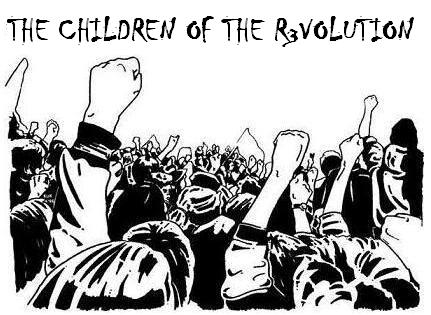 The 1,073-page American Recovery and Reinvestment Act of 2009 (AKA the stimulus bill) will be signed into law on Tuesday by President Obama. Americans will have to wait and watch to see if it has a positive impact on the economy and their personal finances. Whether it will or not is a matter of vociferous debate, and certainly I have some thoughts about it. But setting aside the results (or lack of results) to come, the journey this bill has made from conception to passage tells us quite a lot about the political atmosphere under our new President and his party, none of it good.
The 1,073-page American Recovery and Reinvestment Act of 2009 (AKA the stimulus bill) will be signed into law on Tuesday by President Obama. Americans will have to wait and watch to see if it has a positive impact on the economy and their personal finances. Whether it will or not is a matter of vociferous debate, and certainly I have some thoughts about it. But setting aside the results (or lack of results) to come, the journey this bill has made from conception to passage tells us quite a lot about the political atmosphere under our new President and his party, none of it good.For a start, the President made unwavering promises that the bill would contain no pork or earmarks of any kind except, perhaps, for some money thrown to environmentally-friendly interests. House Speaker Nancy Pelosi pledged the same, in no uncertain terms, in mid-January. Toward the end of January, it was widely whispered that the bill had in fact become saturated with wasteful, special interest spending, the most notable of which was a $200 million allocation for family planning interests. Speaker Pelosi lamely attempted to defend the spending in a manner that shocked even casual observers: fewer children means less cost to the economy, which will have a stimulative effect. The contraceptive portion of the bill was hastily withdrawn after overwhelming criticism. Still, untold depths of monetary waste still lurked in the legislation, which remained officially unpublished for American voters to review, despite the titanic size of potential taxpayer dollars involved. Finally, late in the day on January 26, the bill went public. Reactions of disbelief at some of the measures included were quickly drowned out by the banging of the Speaker’s gavel when the bill passed 244-188 on January 28, without a single Republican vote.
I
I
When the dust settled from the House vote, public opinion began to shift seismically against the bill in its current form. President Obama went before the American people to defend the legislation and sharply accused critics of creating unnecessary distractions. He declared the debate on the bill over and demanded immediate action. In defense of the special interest spending in the bill, which he acknowledged, he lamented that no legislation is perfect and that the urgency of the moment called for speed over careful deliberation. On February 10, the Senate passed their own version of the stimulus with $70 billion in additional spending above and beyond the House version. Even moderate members of the GOP, such as John McCain, called the legislation a mistake and the debate anything but bipartisan. It garnered the bare minimum three GOP votes needed for passage.
Congressional negotiators from both houses worked to reconcile the differences in the legislation to create a single bill to present to the president. The Democratic leadership pledged to publish the bill for the American public (and legislators) to review a full 48-hours prior to the final vote. In keeping with their behavior up to that point, they instead posted the bill around midnight the night of February 12th (see here). The final proposed legislation included several last-minute additions. Early in the afternoon on February 13th, it was sent to the House floor for a roll call vote. Most legislators had little time to review the final language of the legislation prior to casting their vote, as many GOP representatives complained during the brief debate before the roll call. The bill passed the House, once again, along party lines, 246-183. A few hours later, it passed the Senate 60-38, with Senator Sherrod Brown (D–OH) flying back to Washington to cast the critical 60th vote in favor following his mother’s death.
I’m certainly not a party man myself (see here), and of course I doubt the genuine motives of any politician, particularly those that have served more than two terms in office. But here we have a clear demonstration of the difference in conduct between the Democrats and the Republicans. The Democrats have, for the sake of quickly providing economic aid to average Americans who are hurting, rushed through legislation in a closed-door, partisan manner despite all promises to the contrary. They have laden this legislation with spending that represents a wish-list of frustrated Democrat projects for the last decade. The Republicans have stalled the legislation where possible and urged open debate and full disclosure to the public, opposed the vast majority of the spending included and called instead for more sweeping and permanent tax cuts.
Now certainly being the opposition party changes a lot of things. And many of the GOP lawmakers now railing against wasteful spending are the same people who rubber-stamped the largesse of the Bush administration. Nevertheless the GOP was the only major party standing firmly in opposition to the stimulus. That’s a huge change from the spineless behavior of the GOP since 2006. If this re-conversion to fiscal responsibility is coupled with a major purge of the old-guard leadership in favor of younger conservatives, as the election of Michael Steele to the RNC chairmanship portends, then they may be on the long road to recovery.
I
But for now, we’re all living under the rule of the “Party of Change.” And if the stimulus bill is any indicator, that change will come about clumsily, expensively, and largely behind closed doors.







1 comment:
The Dems WILL be the party of change: Changing America as we know it. Remember, we're the most powerful, prosperous, free, and industrious nation in the history of the world. Let's change it guys!
Post a Comment